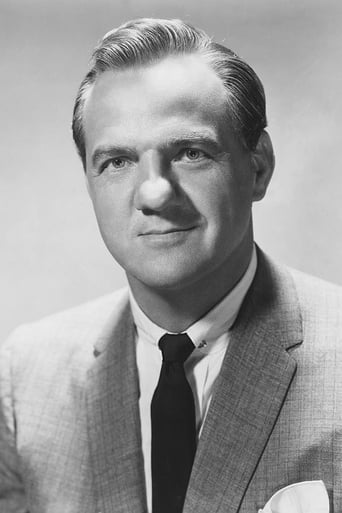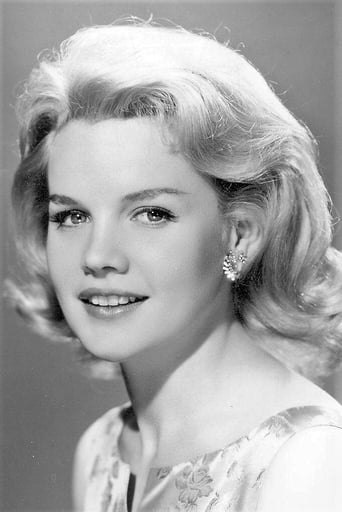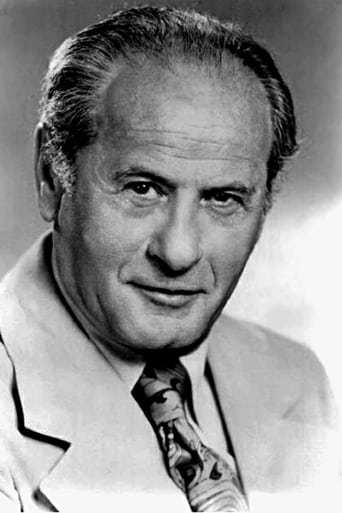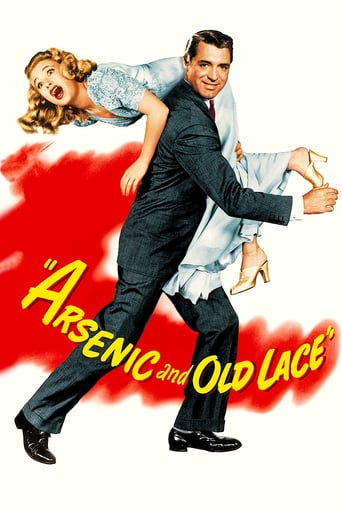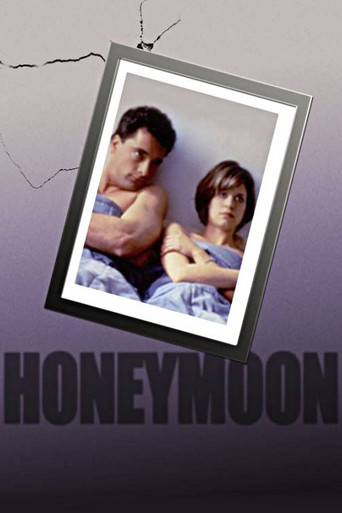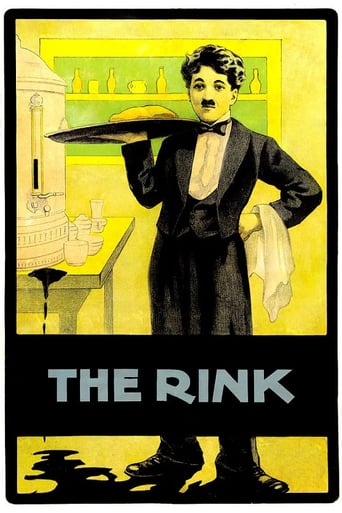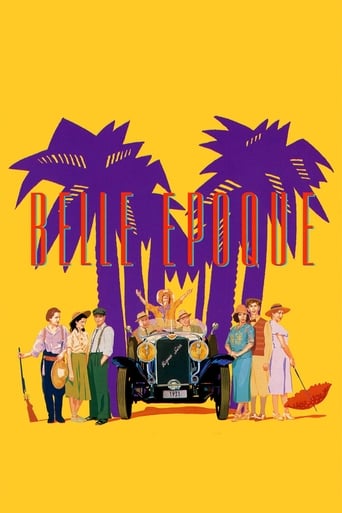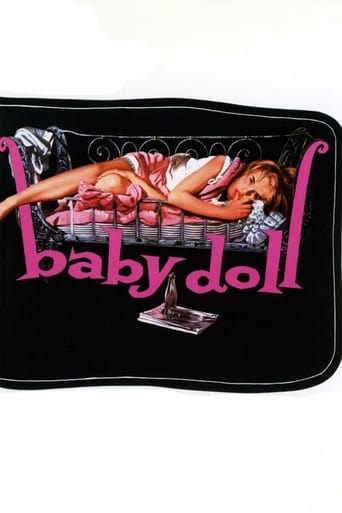
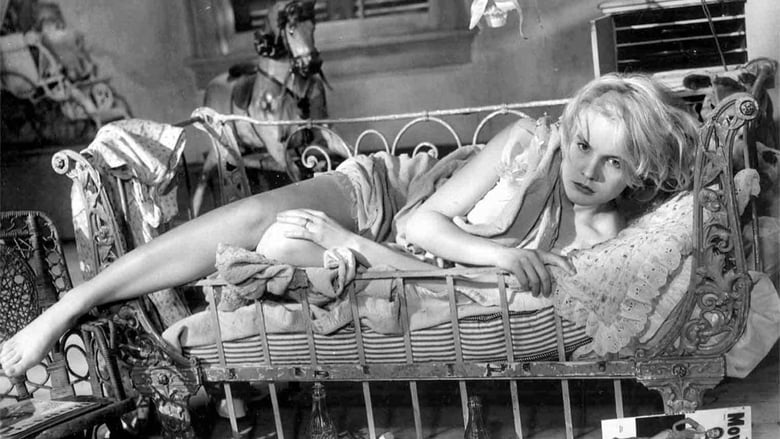
Baby Doll (1956)
Archie Lee Meighan is a failing cotton gin owner who is married to Baby Doll, a 19-year old childlike beauty whose father arranged the marriage for financial reasons. As Archie awaits the arrival of Baby Doll's 20th birthday, the day that they are supposed to consummate their marriage, he faces interference from business rival Silva Vacarro, who plots to seduce Baby Doll away from Meighan.
Watch Trailer
Cast
Similar titles
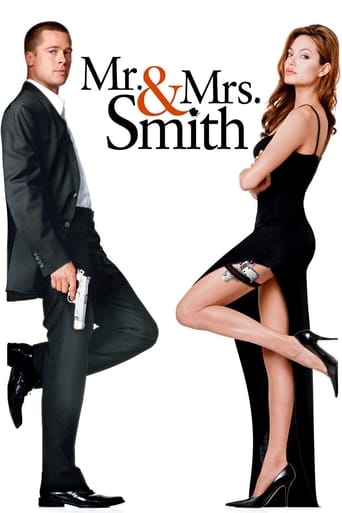

Reviews
Save your money for something good and enjoyable
Strong acting helps the film overcome an uncertain premise and create characters that hold our attention absolutely.
There are moments in this movie where the great movie it could've been peek out... They're fleeting, here, but they're worth savoring, and they happen often enough to make it worth your while.
Actress is magnificent and exudes a hypnotic screen presence in this affecting drama.
This is what Karl Marx said about history repeating itself in his 1852 essay, "The Eighteenth Brumaire of Louis Bonaparte." "Brumaire" is the second month of the French Republican calendar and refers to fog. I think the same concept can be applied to Baby Doll in relation to the 1953 movie that Tennessee Williams also wrote and Elia Kazan also directed, A Streetcar Named Desire. In Streetcar, we grow to identify with and even love the characters played by Vivian Leigh and Marlon Brando. In Baby Doll we are more likely to hold the protagonists in contempt.This does not mean that Baby Doll is badly written, directed, or acted. It is just too much. Everything is extreme and exaggerated. It's hard to take seriously and sometimes appears as grotesque comedy. Yet Williams was intimately familiar with the American South. Maybe farce was a valid way to see it in 1955.
After watching this very amusing comedy on disk, I watched the interview with three of the actors - Eli Wallach, Carol Baker, and Karl Maulden, plus some additional footage about the controversy over the film at the time of its release in the Christmas season of 1956. Special attention was paid to the comments of Cardinal Spellman in St. Patrick's Cathedral who said that any Catholics who would watch the film would commit a sin. The Legion of Decency is also quoted in condemning the film. Warner Brothers eventually withdrew the film from circulation. By today's standards of bare skin and profanity, "Baby Doll" is tame. The irony of Cardinal Spellman's declaration is that as he uttered his condemnation priests were molesting youngsters and getting away with their sexual abuse for years. There is no sexual abuse in the film. No children are involved. Spellman was riding a wave of orthodox opposition to the liberalization of sex in films as Elvis Presley began to reshape teens' views about sexual behavior.Tennessee Williams wrote a screen play that poked fun at various aspects of Southern culture without being blatant about it. His drama focuses on two men, one of whom accuses the other of setting his new cotton gin on fire to protect his own failing ginning business. The young, naive wife of the supposed arsonist becomes the target of the outsider whose gin has been destroyed. He spends an afternoon trying to persuade her to sign a statement that her husband burned down the new ginning mill. His advances are suave but not so overtly sexual as Spellman and the League of Decency proclaimed. In fact, the film is often very funny, but its comedic nature was totally ignored by Spellman and his supporters.It may be difficult for today's audiences to comprehend the censorship that obtained during the 1950s, but it was strong and sustained by the hearings of Senator McCarthy who was hunting commies in Hollywood. Tennessee Williams also wrote screenplays for "A Streetcar Names Desire," "Cat on a Hot Tin Roof," and "Suddenly Last Summer," all films in the 1950s with sexual themes. The last of the three involved homosexuality and an effort to cover it up by having a young woman committed to a mental institution. Yes, those were the days when women could be declared "hysterical," and committed. Unlike these three films "Baby Doll" is a comedy and a satire.Fortunately, "Baby Doll" has survived and stood the test of time and is still a very entertaining film to watch. Carol Baker's performance is superb. She won an Oscar nomination. Only a playwright like Tennessee Williams could end it with such poignant lines, reminiscent of Scarlet O'Hara. You will have to watch it to see what Carol Baker's character says in the closing moment.
I read the play and I liked it. That's why I was interested in seeing this version.I now learn that it's also based on another one-act play, "The Unsatisfactory Supper". I have not read this one; therefore I have no means to know if this screenplay is poorly developed because of it. I almost couldn't believe it was Williams himself who adapted it. I understand that those were terrible censored times and they have to restrain from the S&M that it's presented on the original work. But it is just so different. Starting with "Baby Doll" (stupid name, by the way), whose insufferable, unlikeable and manipulative. I know that women in Williams' world could be seen nowadays as misogynistic representations, but this one is among the worst. You can't help to suffer for poor Archie Lee, even though we could assume he took advantage of her family's decay to get her to marry him.I had to take 3 breaks to watch the whole thing. It is filled with clichés and not clever resources like the irrelevant character of aunt Rose. It is completely pointless and annoying.It is only until 1 hour and 16 minutes have passed that things get interesting and at least I choose to believe our heroin got what she deserved.
"Baby Doll", when it was released in 1956, was obviously going to be a very controversial film. While the country was in the lazy, comfortable days of the mid-1950's, along comes Elia Kazan with a story about a smoldering sexpot wife who is seduced by a Sicilian, who is a competitor of her husband. It is said that upon the film's release, many groups wanted the film pulled from theatres because it was so controversial. By 1956 standards, you can see why. The only problem is, that the movie is not very good.The acting for the most part is over the top. I think that is because the screenplay, by Tennessee Williams is too talkative when it doesn't need to be, has three basically unlikeable lead characters, and doesn't really have much of anything to say. The actors, all from Kazan's beloved Acting Studio do all that they can to try to infuse some meaning into the dialogue. Karl Malden especially gives an "over the top" performance."Baby Doll" takes place in the south, and yet there is no hint of any racial issues mentioned. The one great asset this film has going for it, is that it is filled with many local citizens as extras. Their is a great story in each of their faces, that would be more interesting than this movie.The film has a great many sound quality problems, as well, and a lot of scenes where you can see the actor is talking, but there is no sound to accompany the actions.4 out of 10
